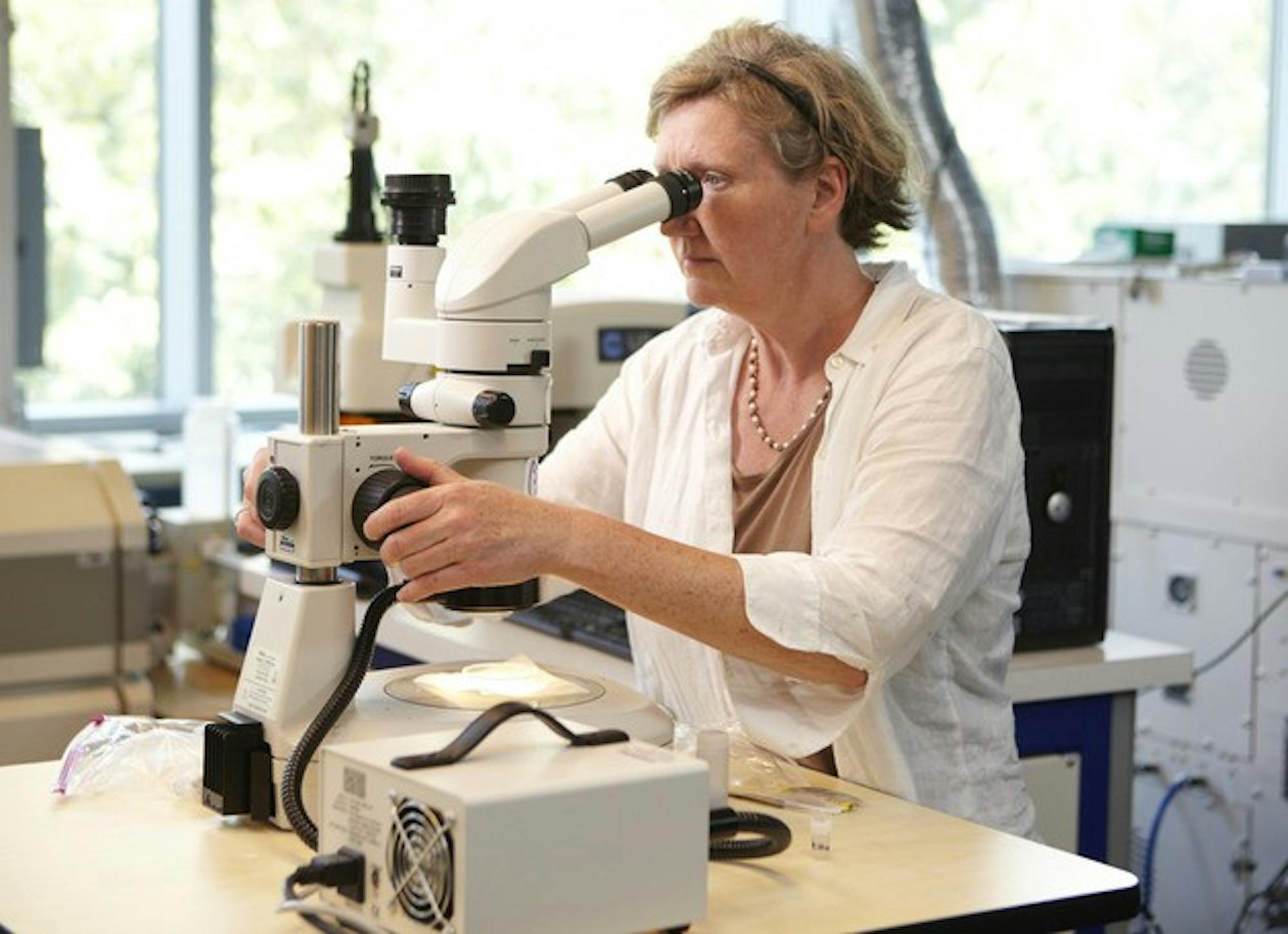The fellowship, often dubbed a "genius grant," is a $500,000 five-year grant awarded to 23 people to pursue their passions without specific obligations or requirements, according to the MacArthur Foundation website.
"This fell out of the sky," Plank said. "It was the best phone call of my life."
Plank, a professor at the Lamont-Doherty Earth Observatory at Columbia University, will be able to pursue novel projects that would not be covered by typical research funding avenues.
"She will be able to use this money to pursue those sorts of projects that others wouldn't fund because they might think it's scientifically risky," David Ferguson, a postdoctoral fellow at Columbia's Earth Institute, said.
Ferguson is currently working with Plank on a project in Kilauea, Hawaii to better understand what causes some volcanic eruptions to be gentle and others explosive. While some volcanic eruptions involve the expulsion of lava, other explosions involve large blasts, ash and small bits of magma that have been broken because of explosive gas, Ferguson said.
By measuring the element composition of magma in crystallized bubble formations and reconstructing volcanic activity prior to eruption, the research will determine what happens underneath the earth when magma is formed, Ferguson said. The research findings will be published in academic journals and will likely be used by colleagues and collaborators in the volcanic observatory in Kilauea in their safety assessments of the volcano.
Ferguson said that Plank is known for using "integrated science" and connecting with scientists in other fields to approach the research she is pursuing.
"Terry is good at linking up with other types of scientists," Ferguson said. "The processes she studies, including magma movements that cause earthquakes, often involve linking up to seismologists and making use of their respective skills to try and approach a problem from two different angles to really understand the issue."
College earth sciences professor Leslie Sonder is pursuing research related to Plank's, applied to plate tectonics and how they affect the types of rocks produced by volcanoes.
"[Plank] thinks about problems but sees connections between important questions and pieces of data and ways to solve problems that other people haven't seen," Sonder said. "You can characterize that as thinking outside of the box."
University of California, Los Angeles geology professor Craig Manning said he worked with Plank on academic papers about earthquakes and volcanic eruptions in the Ring of Fire region, which includes the Pacific areas in the western United States, Mexico, Japan and New Zealand. Plank and Manning attempted to explain the basic chemical process by which volcanoes come into being by analyzing how magma is formed beneath the crust of the Pacific Ocean.
Their research estimated the temperature of element ratios conserved in crystallized bubbles in the lava that erupts to the surface of volcanoes, Manning said. The element ratios are conserved from the time when the magma is initially formed and therefore help determine the temperature of the source area for the lava.
"Part of the game of geochemistry and part of the reason that Terry is now recognized as being so clever is that she has a creativity to find things like these geochemical clues of how rocks work and how they form," Manning said.
As a prospective student, Plank was attracted to Dartmouth because of the school's strong earth sciences program, she said. Among the highlights of her Dartmouth experience were trips to Wyoming; Lake Powell, Utah; and Costa Rica, which helped expand her interest in the field, she said.
Faculty members of Dartmouth's earth sciences department were delighted to hear the news of Plank's award, according to department chair Brian Dade, who said that Plank received the Departmental Upham Prize for best senior thesis of her year.
"Terry's creative insight and collaborative approach to her research of the geochemistry and dynamics of explosive volcanic eruptions reflect the benefits of the liberal sciences education she pursued at Dartmouth," Dade said.
The MacArthur Fellowship selection is made after confidential nominators elect people of "exceptional creativity" in their fields, according to the website. Nominees are then narrowed down by a 12-person confidential committee.
Plank is the sixth Dartmouth graduate to receive the prestigious MacArthur Foundation Fellowship. Her predecessors include Drexel University health management and policy professor John Rich '80 and visual artist Anna Schuleit '05.




